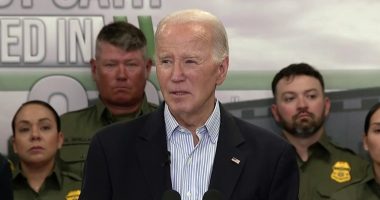
Tesla Inc. says its production plan for its new electric Semi heavy-duty truck remains in a low gear because the special battery cells the big rig needs are in short supply.
The Silicon Valley car maker said this week that it plans to deliver “our first Tesla Semi by the end of the year.” Ramping up production to meet that goal will test Tesla’s ability to scale and to meet pledges to fleet owners in an industry more focused on cost and performance than the typical Tesla buyer.
“Scaling production is very hard,” Chief Executive Elon Musk said in a Wednesday earnings call. “So a big part of the reason—the main reason we have not accelerated new products is—like, for example, Tesla Semi—is that we simply don’t have enough cells for it.”
Unveiled in 2017, the Semi was initially promised to be in customer hands in 2019. Its arrival has since been pushed back two years, delays that Mr. Musk has repeatedly attributed to battery-cell supply constraints.
Mr. Musk said Tesla is “extremely confident” about its ability to produce long-range trucks with batteries. The company has said the Semi will have a range of up to 500 miles, and would use about five times more battery cells than Tesla’s passenger cars.
“But it would not sell for five times what a car would sell for,” Mr. Musk said. “So it would not make sense for us to do the Semi right now, but it will absolutely make sense for us to do it as soon as we can address the cell-production constraint.”
Tesla did not immediately respond to a request for comment on Thursday on details about when production for the Semi would start and how many trucks it expects to deliver by year’s end.
The company has said the electric truck will be built at its new Austin, Texas, factory, its fourth vehicle-assembly plant, which is expected to start delivering vehicles this year. Companies including Walmart Inc., FedEx Corp. , United Parcel Service Inc., Ryder System Inc. and J.B. Hunt Transport Services Inc. have placed reservations for the Semi.
“We’ve got a lot of fleets who put in orders, and they’ve been waiting for a while,” said Tim Denoyer, a vice president and senior analyst at transportation industry data provider ACT Research. “Even if they can’t do it profitably, there’s certainly pressure to get production up and going by the end of the year.”
Tesla has said the truck will sell for $150,000 to $200,000. A new diesel-powered Class 8 tractor sells on average for between $110,000 and $130,000.
Still, Mr. Denoyer said Tesla should have a cost advantage over other vehicle makers that are developing electric heavy-duty trucks because the company makes its own batteries. “Most OEMs [original equipment makers] will have to outsource batteries to other suppliers,” he said. “Most people aren’t going to be able to compete with Tesla’s costs.”
Write to Jennifer Smith at [email protected] and Paul Page at [email protected]
Copyright ©2020 Dow Jones & Company, Inc. All Rights Reserved. 87990cbe856818d5eddac44c7b1cdeb8
Appeared in the January 29, 2021, print edition as ‘Battery-Cell Squeeze Strains Tesla Truck Production.’









